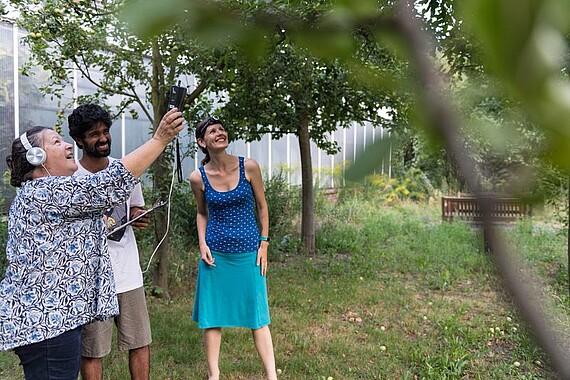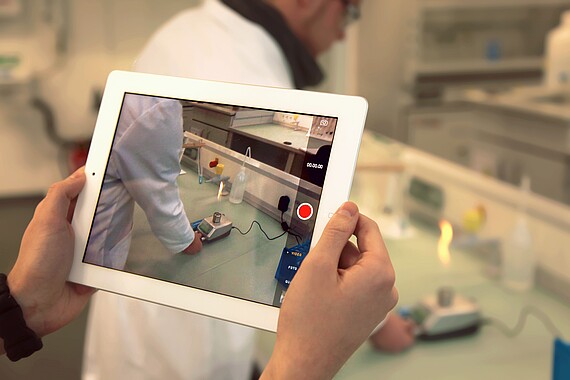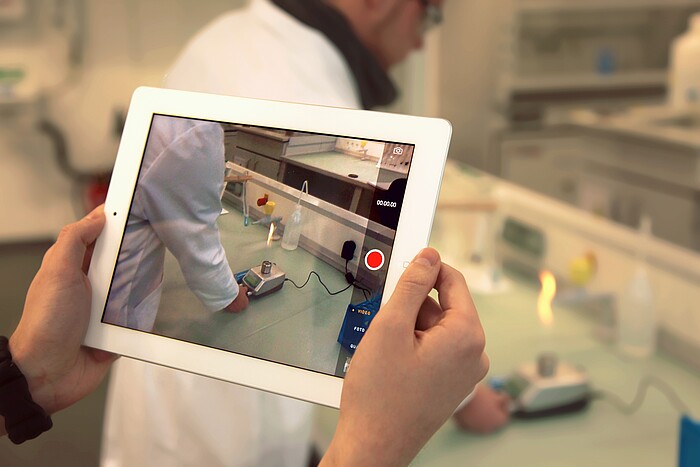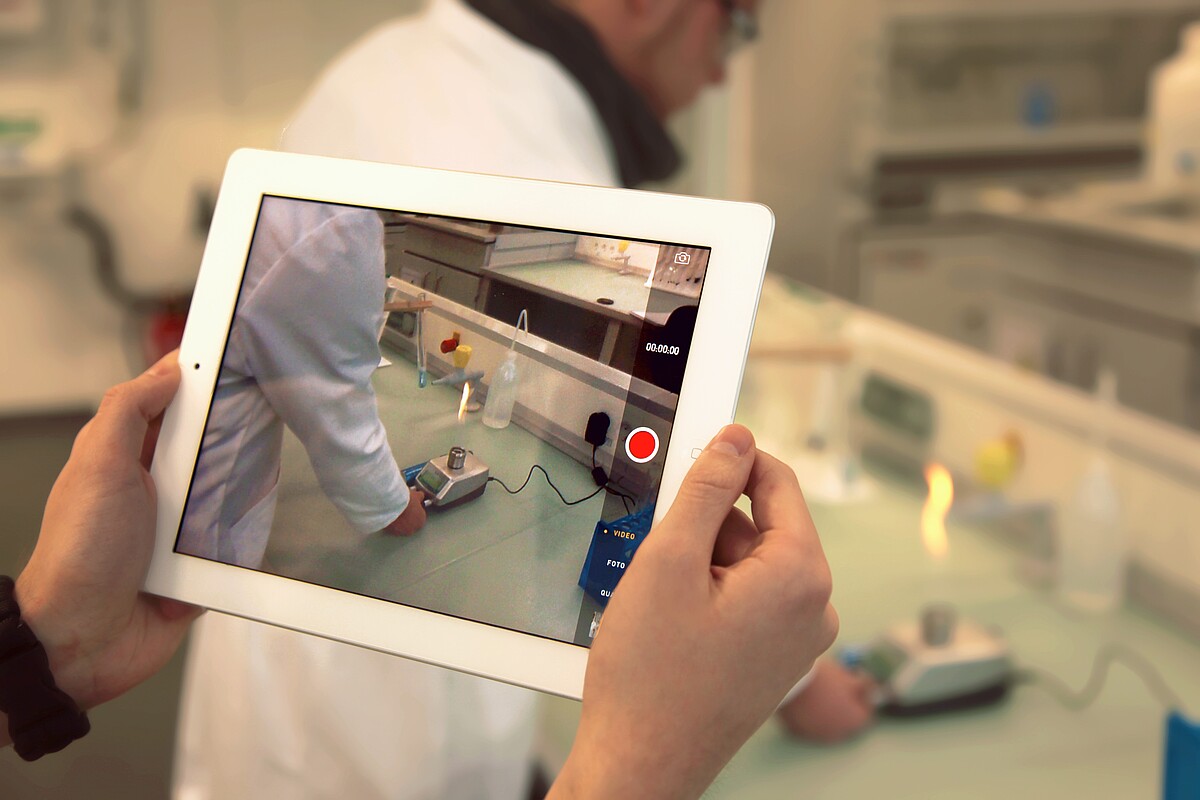Participation in research
In science, scientific laypersons are increasingly participating in research processes, so that there is potential for promoting an understanding of science. However, it has not yet been clarified what effects participation in research processes has on an understanding of science and what conditions must be met for this to happen. While in formal contexts teaching-learning concepts for inquiry-based learning support individual research processes, in non-formal contexts it is still unclear how open research processes can be structured. Our research projects address the question of how participation in research processes can be promoted and how research-based learning can be supported.


 ©
Christof Häberle
©
Christof Häberle
Selected publications
- Bruckermann, T., Greving, H., Schumann, A., Stillfried, M., Börner, K., Kimmig, S. E., Hagen, R., Brandt, M., & Harms, U. (2023). Scientific reasoning skills predict topic-specific knowledge after participation in a citizen science project on urban wildlife ecology. Journal of Research in Science Teaching, 60(9), 1915–1941. https://doi.org/10.1002/tea.21835
- Bruckermann, T., Greving, H., Schumann, A., Stillfried, M., Börner, K., Kimmig, S., Hagen, R., Brandt, M., & Harms, U. (2021). To know about science is to love it? Unraveling cause-effect relationships between knowledge and attitudes toward science in citizen science on urban wildlife ecology. Journal of Research in Science Teaching, 58(8), 1179–1202. https://doi.org/10.1002/tea.21697 *Top Cited Article 2021–2022, **Top Downloaded Article 2021–2022
- Greving, H., Bruckermann, T., Schumann, A., Stillfried, M., Börner, K., Hagen, R., Kimmig, S., Brandt, M., & Kimmerle, J. (2023). Attitudes toward Engagement in Citizen Science Increase Self-Related, Ecology-Related, and Motivation-Related Outcomes in an Urban Wildlife Project. BioScience, 73(3), 206–219. https://doi.org/10.1093/biosci/biad003
Other contributions
Digital Media in formal and non-formal learning contexts


 ©
Anne Germund
©
Anne Germund
Furthermore, digitization enables expanded forms of representation and collaboration for knowledge construction in research in the natural sciences. For example, dynamic representations, such as videos and animations, of experiments are increasing practice, as laboratory techniques can be reproduced in more detail in video protocols. Online platforms open up possibilities for capturing, but also analyzing, collaboratively generated data sets and thus for collaborative knowledge construction in research projects. In this research focus, we therefore investigate the extent to which digital media as an epistemic practice in the natural sciences promote individual learning and knowledge construction.
Selected publications
- Bruckermann, T., Greving, H., Stillfried, M., Schumann, A., Brandt, M., & Harms, U. (2022). I’m fine with collecting data: Engagement profiles differ depending on scientific activities in an online community of a citizen science project. PLoS ONE, 17(10), e0275785. https://doi.org/10.1371/journal.pone.0275785
- Fischer, J., Machts, N., Bruckermann, T., Möller, J., & Harms, U. (2022). The Simulated Classroom Biology: A simulated classroom environment for capturing the action-oriented professional knowledge of pre-service teachers about evolution. Journal of Computer Assisted Learning, 38(6), 1765–1778. doi.org/10.1111/jcal.12718
- von Kotzebue, L., Meier, M., Finger, A., Kremser, E., Huwer, J., Thoms, L-J., Becker, S., Bruckermann, T., & Thyssen, C. (2021). The Framework DiKoLAN (Digital Competencies for Teaching in Science Education) as Basis for the Self-Assessment Tool DiKoLAN-Grid. Education Sciences, 11(12), [775]. https://doi.org/10.3390/educsci11120775




![[Translate to English:] Bild des Visual Abstracts](/typo3temp/assets/_processed_/6/d/csm_37c0183ad9eb500a46a194f02fce27fed1b7f4b8-fp-16-9-0-0_0e2354899f.jpeg)
![[Translate to English:] Bild des Visual Abstracts](/typo3temp/assets/_processed_/6/d/csm_37c0183ad9eb500a46a194f02fce27fed1b7f4b8-fp-16-9-0-0_014b8c77c7.jpeg)
![[Translate to English:] Bild des Visual Abstracts](/typo3temp/focuscrop/37c0183ad9eb500a46a194f02fce27fed1b7f4b8-fp-16-9-0-0.jpeg)






![[Translate to English:] Zusammenhang zwischen Wissen und Einstellungen](/typo3temp/assets/_processed_/2/1/csm_295d78b14abec65a7664f7a169683128c1af65d5-fp-16-9-0-0_0b71917273.png)
![[Translate to English:] Zusammenhang zwischen Wissen und Einstellungen](/typo3temp/assets/_processed_/2/1/csm_295d78b14abec65a7664f7a169683128c1af65d5-fp-16-9-0-0_5f08e016a8.png)
![[Translate to English:] Zusammenhang zwischen Wissen und Einstellungen](/typo3temp/focuscrop/295d78b14abec65a7664f7a169683128c1af65d5-fp-16-9-0-0.png)






